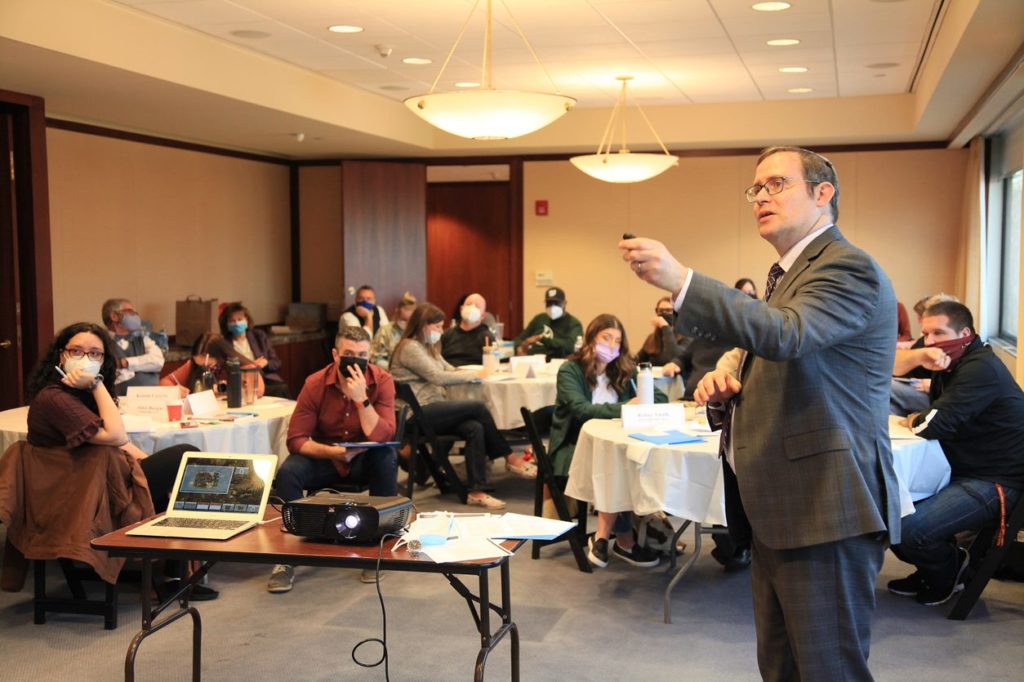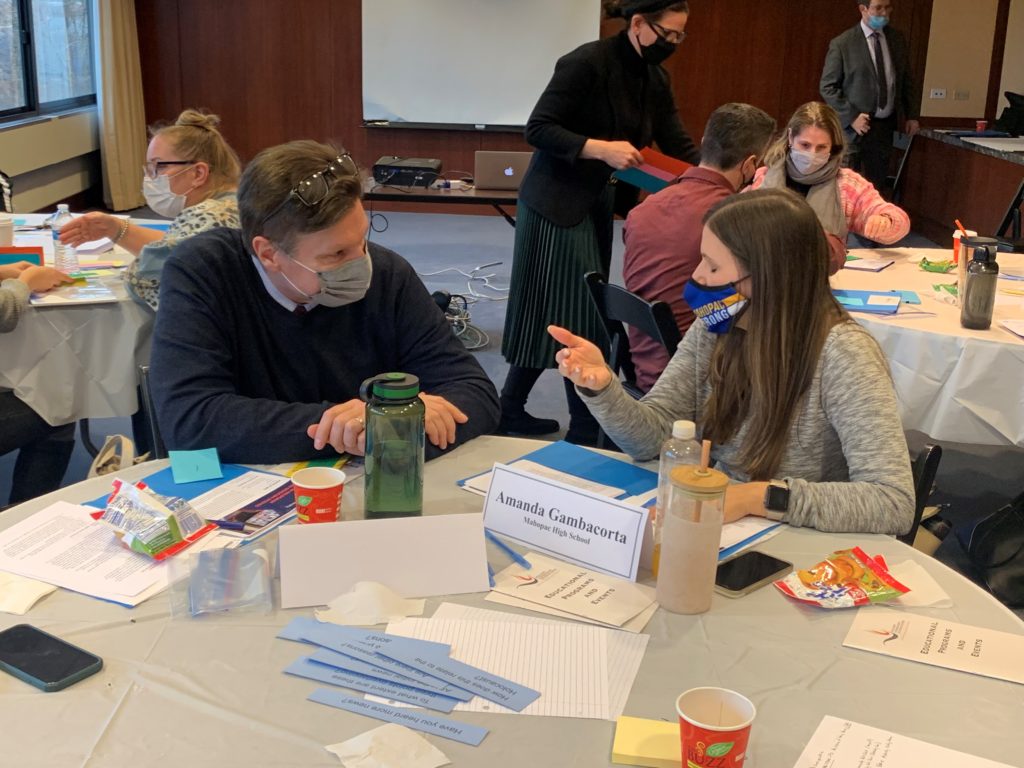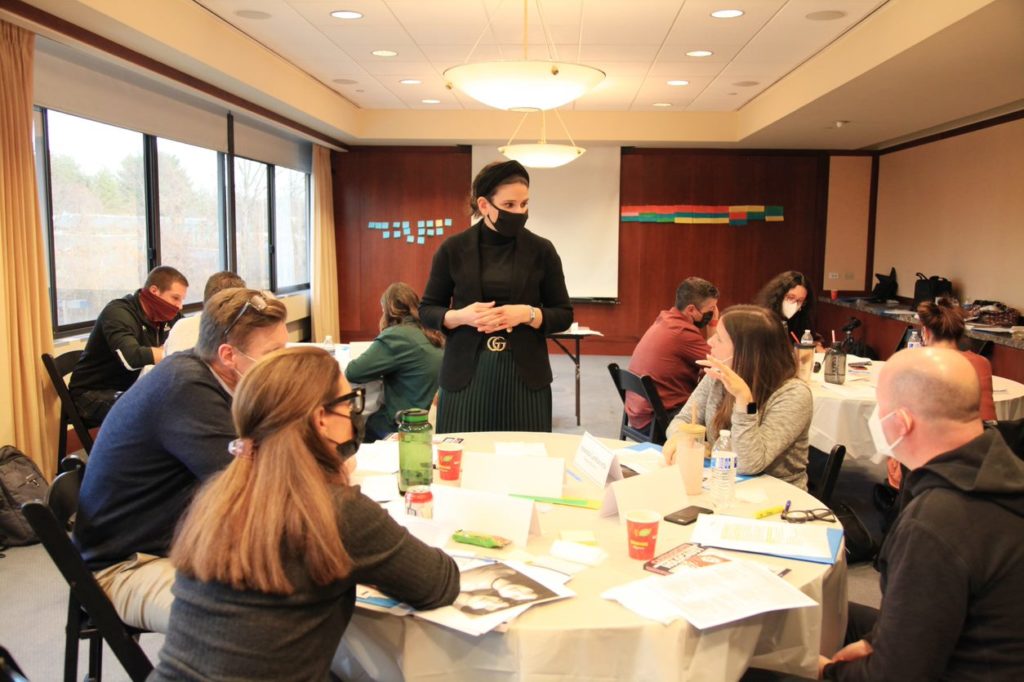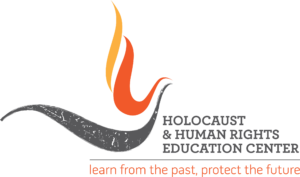
HHREC Hosts Westchester Social Studies Teachers Holocaust Education Seminar

How do you decide what facts to include in a history textbook? How do the facts not included change the narrative? How do you tackle teaching the topic of the Holocaust? A diverse group of teachers from Westchester County grappled with these issues and more during a recent day-long educational seminar hosted by the Holocaust and Human Rights Education Center (HHREC) in White Plains, NY, the Westchester Lower Hudson Council of Social Studies teachers, and The Yeshiva University Emil A. and Jenny Fish Center for Holocaust and Genocide Studies Center at Yeshiva University.
More than 20 High School and Middle School History and Social Studies teachers from Westchester County engaged in the program that was based on New York State – mandated guidelines for Social Studies curriculum for high schoolers, and provided professional development credits to the teachers. During the seminar, teachers including Susan Chester of the Eastchester School District, President of the Westchester Lower Hudson Council for the Social Studies participated in hands-on activities including an exercise playing the role of a history textbook author. Each teacher was tasked with ranking in order the important contributing factors as they developed historical narratives from different points of view.
The program featured guest lecturer Dr. Shay Pilnik, Director of the Fish Center for Holocaust and Genocide Studies. Participating schools included:
Briarcliff High School
Byram Hills High School
Eastchester Middle School
HC Crittenden Middle School
Hommocks Middle School
Iona Prep Lower School
Mahopac High School
New Rochelle High School
Peekskill Middle School
Pelham Memorial High School
Valhalla High School
Woodlands Middle High School
Sleepy Hollow Middle School
“For an educator, the greatest challenge in teaching Holocaust is not the transmission of the facts – these are well-established and well-documented” said Dr. Pilnik. He added: “The hardest part is to put these facts together into a story, a narrative, and understand the most fundamental question, which lies at the core of Holocaust education – why?”
Feedback from the teachers was positive. “My unit on the Holocaust is coming up in a few weeks, and I will include some of the activities from this day in my plans” said one teacher. The educators expressed their gratitude for the hosts in coming together with teachers from other district, and the feelings of loneliness in trying to cover such broad and complex subjects. One teacher said, “I am definitely using “blackout poetry” with my students.” Another teacher was quoted as saying “ My students come to my class knowing more about Zombie Nazis from Call of Duty than actual facts about the Holocaust.”
According to Steve Goldberg, Co-Director of the HHREC, “The teachers welcomed the chance to be students again, and left the day armed with tangible lesson plans that could be used in the classroom, a list of additional online resources, and a broader understanding of the key elements of the Holocaust.”
This program was developed and led by Steven Goldberg and Julie Scallero, Co-Directors of the HHREC; Lois Roman, Sari Sheinfeld and Dr, Shay Pilnik from the Fish Center at Yeshiva University; and Westchester Lower Hudson Council of Social Studies teachers. The program partners emphasized the need to shape and reshape Holocaust education in the 21st century as a key element to keep the subject relevant in today’s world, and expressed how important designing innovative educational modules for teaching the basics about the Holocaust is in today’s modern culture. Recent surveys have shown that young Americans retention of Holocaust facts is quite low.
The missions of the HHREC and the Fish Center include presenting and promoting local community educational opportunities which offer lessons from the Holocaust to protect the right of all people to be treated with dignity and respect. These organizations present the Holocaust as a unique event in history which should be studied by all young people to help improve the world’s level of tolerance.


